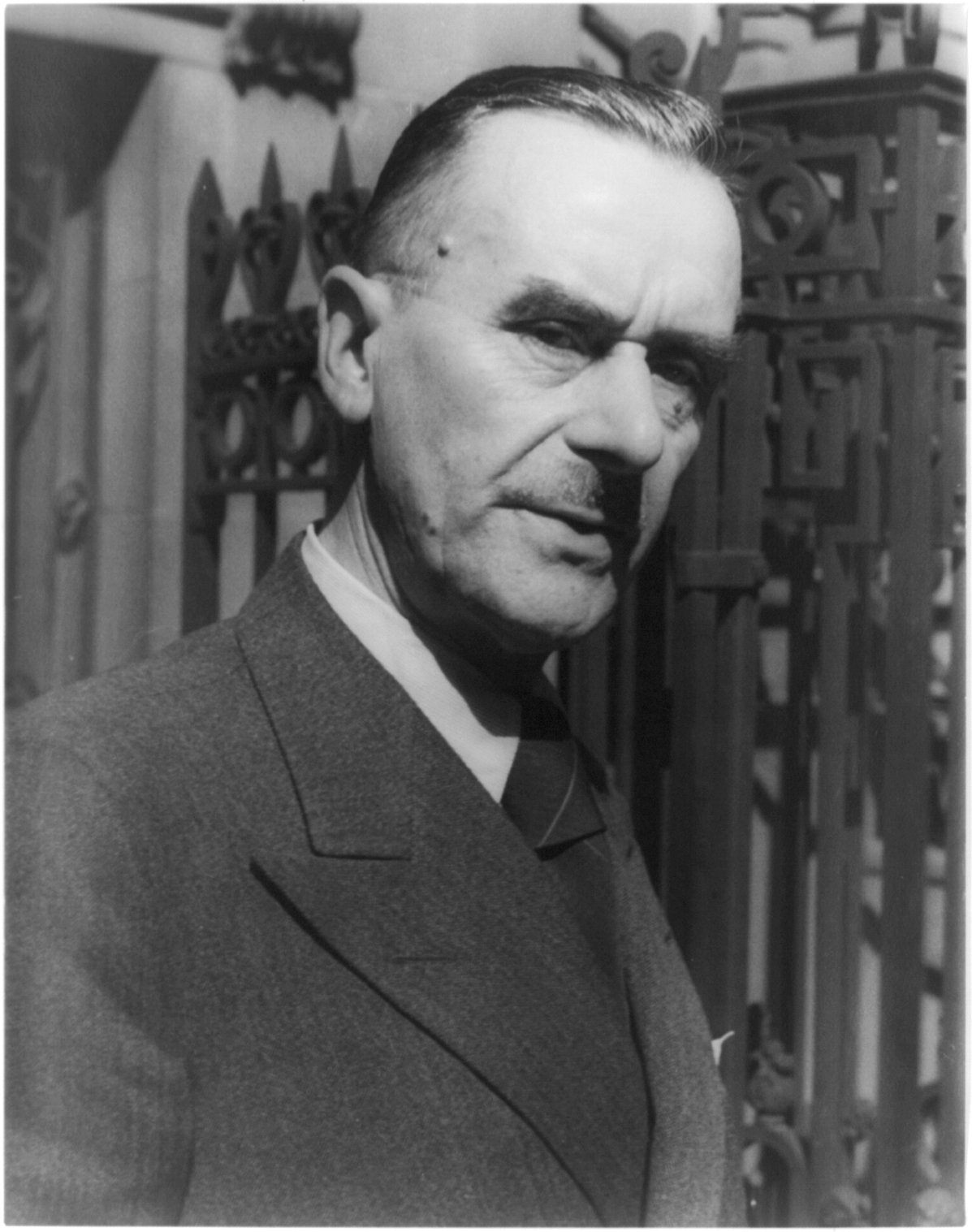„Ten, kto miluje viac, je podriadený a musí trpieť.“
Prisudzované výroky
Varianta: Ten kto miluje viac, je podriadený a musí trpieť.
Paul Thomas Mann bol nemecký spisovateľ, filantrop a esejista prvej polovice 20. storočia. V roku 1929 získal Nobelovu cenu za literatúru.

„Ten, kto miluje viac, je podriadený a musí trpieť.“
Prisudzované výroky
Varianta: Ten kto miluje viac, je podriadený a musí trpieť.
„Spisovateľ je človek, pre ktorého je písanie zložitejšie ako pre iných ľudí.“
Prisudzované výroky
Varianta: Spisovateľ je človek, pre ktorého je písanie ťažšie ako pre ostatných ľudí.
„Sklamanie je ako zmrznutá ruka: môže sa vyliečiť, ale vždy bolí.“
Prisudzované výroky
„Vojna je iba zbabelý útek od problémov v mieri.“
Prisudzované výroky
„Kto nepozná minulosť, nepochopí budúcnosť.“
Prisudzované výroky
“Disease was a perverse, a dissolute form of life.”
Zdroj: The Magic Mountain (1924), Ch. 5
Essays, ed. by H.Kurzke, Frankfurt 1986, vol. 2, p. 311
Was wir Trauer nennen, ist vielleicht nicht sowohl der Schmerz über die Unmöglichkeit, unsere Toten ins Leben kehren zu sehen, als darüber, dies gar nicht wünschen zu können.
http://books.google.com/books?id=q4UdAAAAMAAJ&q=%22was+wir+Trauer+nennen+ist+vielleicht+nicht+sowohl+der+Schmerz+%C3%BCber+die+Unm%C3%B6glichkeit+unsere+Toten+ins+Leben+kehren+zu+sehen+als+dar%C3%BCber+dies+gar+nicht+w%C3%BCnschen+zu+k%C3%B6nnen%22&pg=PA562#v=onepage
Zdroj: The Magic Mountain (1924), Ch. 7
Zdroj: The Beloved Returns (1939), Ch. 7
As quoted in The New York Times (18 June 1950); also in Thomas Mann: A Critical Study (1971) by R. J. Hollingdale, Ch. 2
“A black pall, you know, with a silver cross on it, or R. I. P.”
requiescat in pace — you know. That seems to me the most beautiful expression — I like it much better than ‘He is a jolly good fellow,’ which is simply rowdy.
Zdroj: The Magic Mountain (1924), Ch. 5
but I do not envy them. For if anything is capable of making a poet out of a man of letters, it is this plebeian love of mine for the human, living, and commonplace. All warmth, all goodness, all humor is born of it, and it almost seems to me as if it were that love itself, of which it is written that a man might speak with the tongues of men and of angels, and yet without it be no more than sounding brass or a tinkling cymbal.
Zdroj: Tonio Kröger (1903), Ch. 9, as translated by Bayard Quincy Morgan
“It is as though something had begun to slip – as though I haven’t the firm grip I had on events.”
What is success? It is an inner, an indescribable force, resourcefulness, power of vision; a consciousness that I am, by my mere existence, exerting pressure on the movement of life about me. It is my belief in the adaptability of life to my own ends. Fortune and success lie within ourselves. We must hold them firmly – deep within us. For as soon as something begins to slip, to relax, to get tired, within us, then everything without us will rebel and struggle to withdraw from our influence. One thing follows another, blow after blow – and the man is finished.
Buddenbrooks [Buddenbrooks: Verfall einer Familie, Roman] (1901). Pt 7, Ch. 6